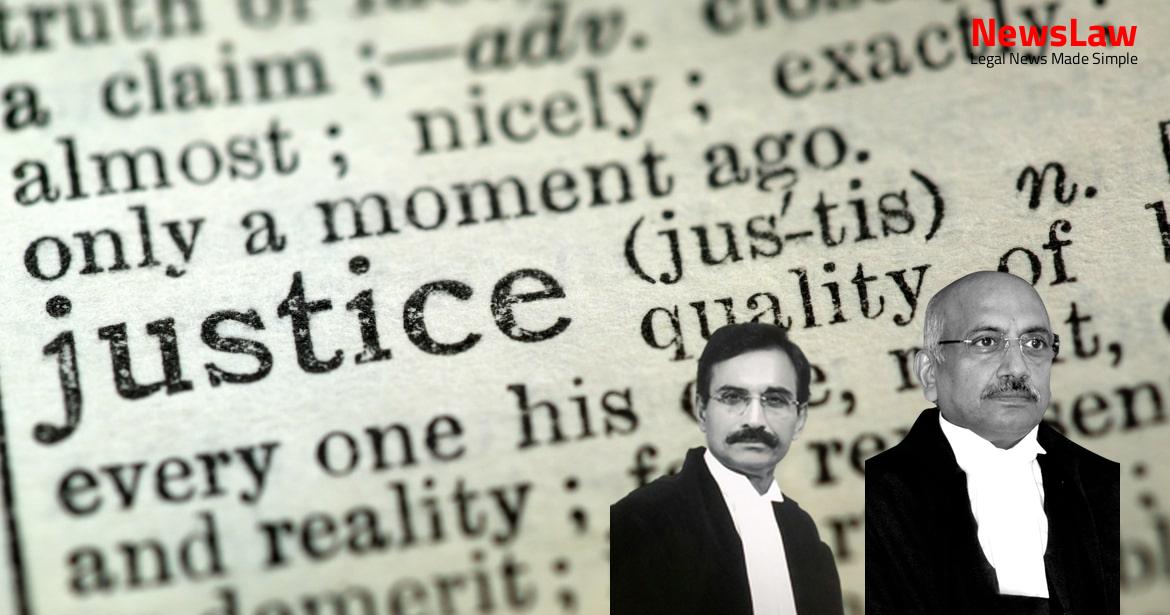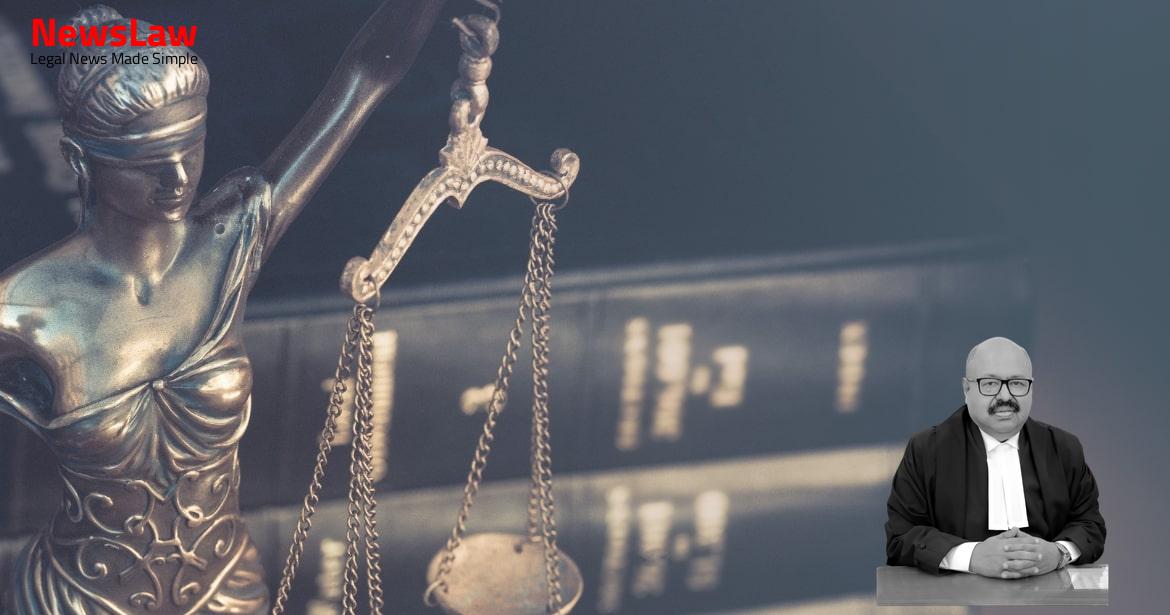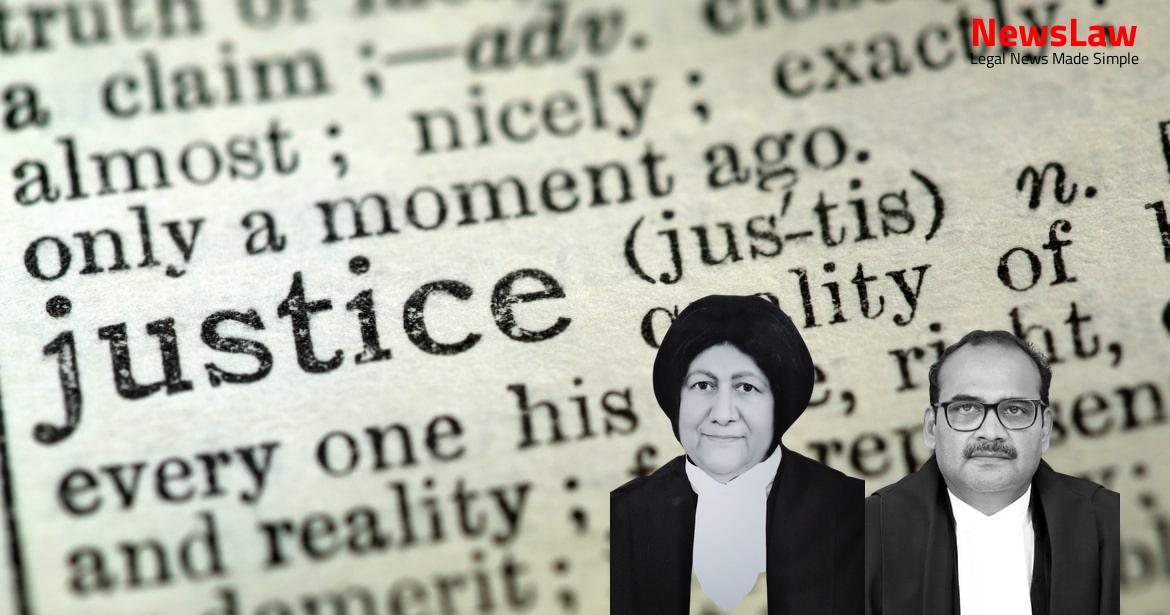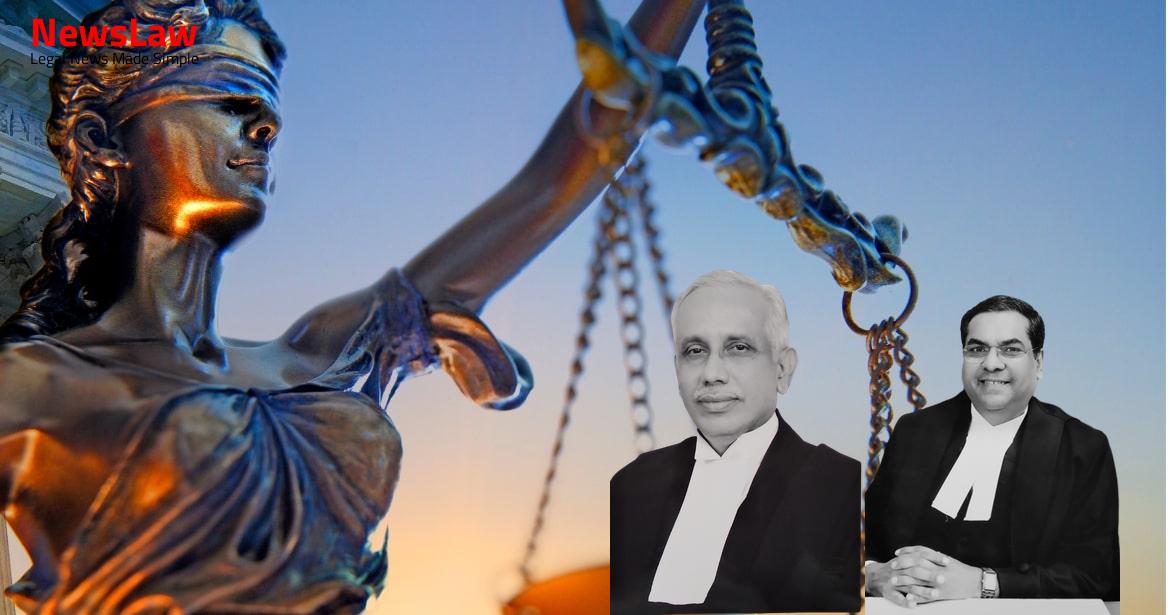In a recent case before the Supreme Court of India, the matter of a termination order appeal was brought forward. The court analyzed the termination of services of a temporary employee and evaluated claims of jurisdictional violations and lack of natural justice. The case involved a dispute regarding unsatisfactory work performance in the academic years 1999-2000 and 2000-2001. Stay tuned for a detailed overview of the Supreme Court’s decision on this crucial legal matter.
Facts
- Petitioner’s appeal against termination order was filed before College Tribunal under Section 59 of Maharashtra Universities Act, 1994
- Presiding Officer of College Tribunal dismissed the appeal
- Leave has been granted for further proceedings
- Original Name was appointed as a Lecturer of Home Economics on ad-hoc basis
- Termination of services was based on unsatisfactory performance in academic years 1999-2000 and 2000-2001
- Termination occurred before completion of the probation period, triggering the issue of stigma
- Division Bench found the order of termination not innocent, leading to the appeal outcome
Also Read: Property Inheritance Dispute: The Legacy of Chhotabhai Ashabhai Patel
Arguments
- The petitioner argued that the order passed against him was without jurisdiction, violative of principles of natural justice, and without application of mind.
- He contended that the order was passed in a mechanical manner without considering the relevant facts and legal provisions.
- The petitioner claimed that he was not given a proper opportunity to present his case and that the order was arbitrary and unjust.
- He further argued that the order was based on wrong assumptions and misinterpretation of facts.
- The petitioner sought the court’s intervention to set aside the order and provide him with relief.
Also Read: Lt. Col. Om Dutt Sharma vs. Ministry of Defence: OROP Entitlement for Army Postal Service Personnel
Analysis
- The termination of the services of a temporary or probationary employee based on adverse entries or unsatisfactory work is not punitive but a decision on retention.
- The appointment of the individual in question was ad-hoc, not probationary, with the management’s right to terminate based on unsatisfactory work during this period.
- The termination order stated unsatisfactory work without any stigma, indicating it was a simple termination.
- The language in the termination order mentioned unsatisfactory work and conduct, not punitive reasons.
- A charge-sheet is for detailing allegations to allow the employee to respond effectively, not for punitive measures.
- In the case of Ram Narayan Das, the assessment for termination is not based on finding misconduct but on overall performance.
- Preliminary inquiry’s purpose is to determine prima facie evidence for regular departmental inquiry, not for finding misconduct.
- Even if a regular departmental inquiry is initiated and then dropped without findings, termination is not punitive.
- Termination based on unsatisfactory work is a motive, not a foundation for termination.
- Comments on work performance cannot be the sole basis for setting aside termination of an ad-hoc employee.
- The order of termination in the case in question is not stigmatic according to precedents.
- Termination without established guilt can be a benefit to the employee to avoid career stigma.
- Allegations that raise a cloud on conduct can justify termination without stigma.
- Inquiry to assess fitness for probation is not necessarily punitive.
- Termination is considered punitive if a full-scale formal enquiry into misconduct culminates in a finding of guilt.
- An employer has the right to ensure the competence of a probationer before confirming their service.
- The order passed by the Division Benchof the High Court is deemed legally unsustainable.
- Disciplinary action following a regular inquiry is not pertinent to the termination of an employee hired on an ad-hoc basis.
Also Read: Financial Capacity and Specific Performance: A Landmark Judgment by the Supreme Court Of India
Decision
- The same is set aside.
- The appeal is allowed.
- No costs.
Case Title: WAINGANGA BAHUDDESHIYA VIKAS SANSTHA THR. PRESIDENT B.B. KARANJEKAR Vs. KU. JAYA
Case Number: C.A. No.-006226-006226 / 2019



